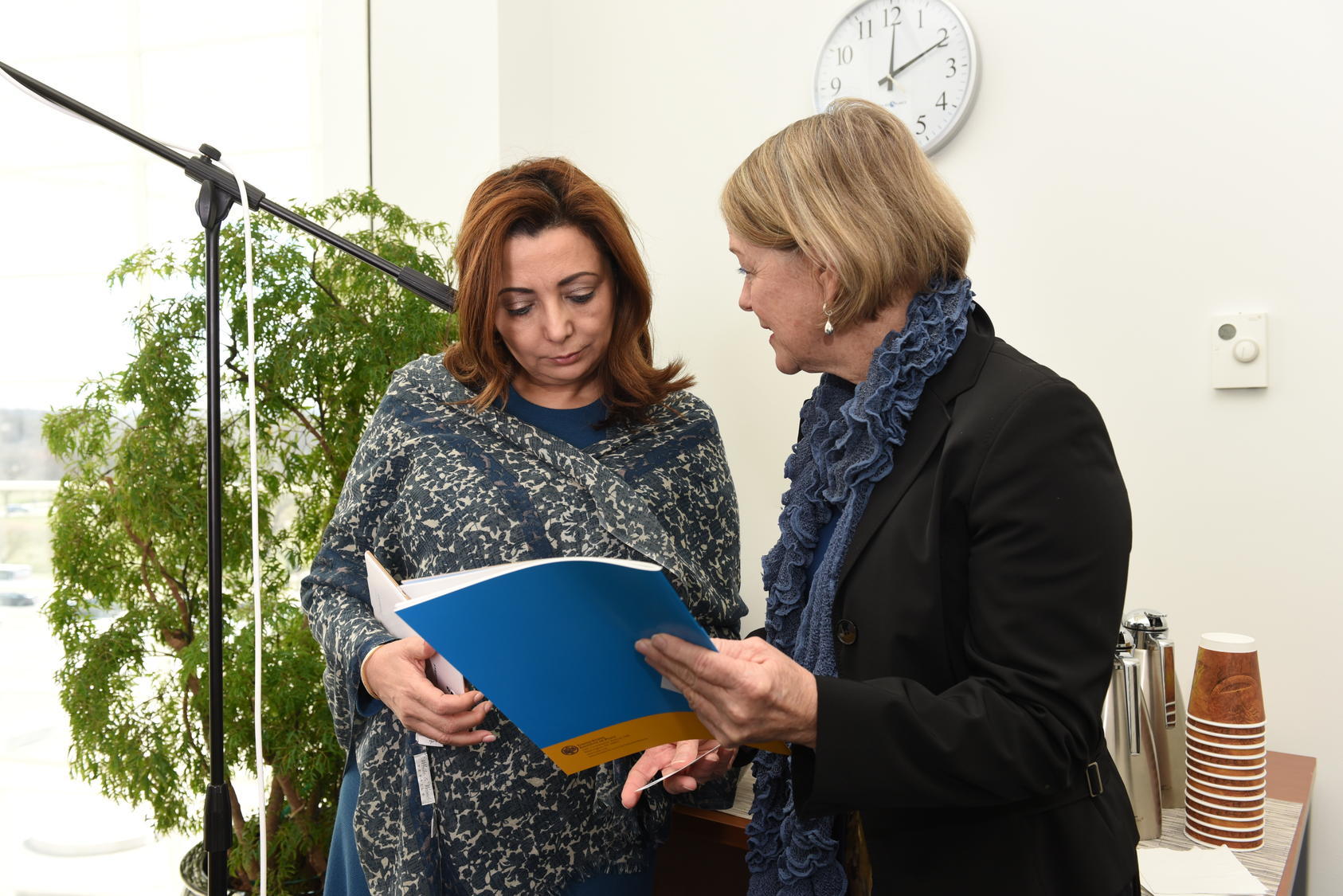Group Leader in Nobel-Winning Quartet: Tunisia Needs Education Review for Jobs
The president of one of the four civil society organizations in the Nobel Prize-winning Tunisian National Dialogue Quartet said her country will need to make changes in its education system to reduce unemployment and adapt to an evolving economy. In a videotaped interview during a visit to USIP, Ouided Bouchamaoui talked about some of the many issues facing Tunisia during its still-precarious transition and about the status of women in society and the economy.

Bouchamaoui is president of the Tunisian Confederation of Industry, Trade and Handicrafts, one of four organizations in the Quartet, which was awarded the Peace Prize in October "for its decisive contribution to the building of a pluralistic democracy in Tunisia in the wake of the Jasmine Revolution of 2011." The other organizations in the Quartet are the Tunisian General Labor Union, the Tunisian Human Rights League and the Tunisian Order of Lawyers.
Tunisia remains the only country in the 2011 Arab Spring revolutions that hasn't descended into war or returned to authoritarian rule, in part because of the leadership of figures such as Bouchamaoui and Sheikh Rachid Ghannouchi, the leader of the Islamist movement Ennahda whose government stepped down amid deep tensions in 2013 to avoid a spiral into violence. But Tunisia faces daunting odds: a weakening economy, rising violent extremism and public disenchantment with the difficulties of transition, according to a panel of experts who marked the anniversary at USIP in January. Some experts have called for stepping up assistance to Tunisia as a rare bulwark of peace in the region.
"What we did in Tunisia is something [of] an exception,” Bouchamaoui said in the USIP interview on March 2. "We have to trust our country and to say, 'We can change our country.'"


